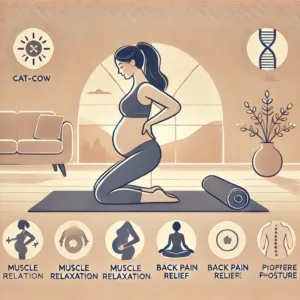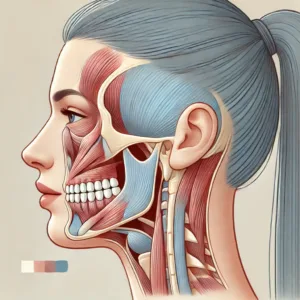Understanding Anxiety Symptoms
Table of Contents

Understanding Anxiety Symptoms
What Is Anxiety and Why Do We Experience It?
Anxiety is a natural response to stress, often described as a feeling of fear or worry about a perceived threat or future event. While everyone experiences anxiety at times, chronic anxiety can interfere with daily life and lead to mental and physical symptoms.
What Are the Common Symptoms of Anxiety?
Anxiety manifests in both the mind and body. Here’s an overview of common symptoms:
1. Psychological Symptoms:
- Excessive Worry: Persistent, overwhelming concerns that are difficult to control.
- Restlessness: Feeling on edge or unable to relax.
- Difficulty Concentrating: Trouble focusing on tasks or making decisions.
- Irritability: Short temper or frustration over minor issues.
- Sense of Impending Doom: A feeling that something terrible is about to happen.
2. Physical Symptoms:
- Increased Heart Rate (Palpitations): The heart races or pounds, even when resting.
- Shortness of Breath: Feeling like you can’t get enough air.
- Sweating (Hyperhidrosis): Sweating excessively, even in cool environments.
- Muscle Tension: Tightness in the neck, shoulders, or jaw.
- Fatigue: Extreme tiredness even without physical exertion.
- Trembling or Shaking: Noticeable body shakes or internal trembling.
3. Behavioral Symptoms:
- Avoidance: Staying away from situations, places, or people that trigger anxiety.
- Compulsive Behaviors: Repeated actions like nail-biting or pacing to reduce tension.
- Sleep Disturbances: Difficulty falling asleep or waking up frequently during the night.
How Can Anxiety Symptoms Differ?
Anxiety symptoms vary based on the type of anxiety disorder. Here’s a breakdown of common disorders:
1. Generalized Anxiety Disorder (GAD)
- Main Symptoms: Chronic worry, restlessness, and difficulty concentrating.
- Duration: Lasts more than 6 months.
2. Panic Disorder
- Main Symptoms: Sudden, intense panic attacks with symptoms like racing heart, chest pain, and shortness of breath.
- Key Feature: Episodes often occur unexpectedly.
3. Social Anxiety Disorder
- Main Symptoms: Fear of social situations or being judged by others.
- Behavioral Traits: Avoidance of public speaking, parties, or social interactions.
4. Obsessive-Compulsive Disorder (OCD)
- Main Symptoms: Intrusive thoughts (obsessions) and repetitive behaviors (compulsions).
- Example: Repeatedly checking if doors are locked.
5. Post-Traumatic Stress Disorder (PTSD)
- Main Symptoms: Flashbacks, nightmares, and hyper-vigilance.
- Trigger: Often stems from a traumatic event.
What Causes Anxiety Symptoms?
Anxiety symptoms can be triggered by a combination of biological, psychological, and environmental factors:
- Brain Chemistry: Imbalance in neurotransmitters like serotonin and dopamine.
- Genetics: A family history of anxiety disorders can increase your risk.
- Environmental Stressors: Major life changes, trauma, or ongoing stress.
- Medical Conditions: Thyroid disorders, heart disease, or chronic illnesses.
- Substance Abuse: Alcohol or drug withdrawal can trigger or worsen anxiety.
When Should You Seek Help for Anxiety Symptoms?
While occasional anxiety is normal, it’s important to seek professional help if:
- Anxiety interferes with daily life, work, or relationships.
- You experience frequent or severe panic attacks.
- You avoid social or professional situations due to anxiety.
- Physical symptoms (e.g., rapid heartbeat, chest pain) persist without medical cause.
What Are the Treatment Options for Anxiety Symptoms?
1. Cognitive Behavioral Therapy (CBT)
- Helps identify and change negative thought patterns.
- Often used for GAD, OCD, and panic disorders.
2. Medications
- Selective Serotonin Reuptake Inhibitors (SSRIs): Common for long-term management.
- Benzodiazepines: Used for short-term relief of severe anxiety.
- Beta-Blockers: Reduce physical symptoms like racing heart.
3. Lifestyle Changes
- Regular exercise to reduce stress.
- Balanced diet rich in omega-3s, magnesium, and B vitamins.
- Mindfulness practices, such as meditation or yoga.
4. Support Groups
- Sharing experiences with others can reduce isolation and provide coping strategies.
5. Holistic Approaches
- Acupuncture, aromatherapy, and herbal supplements (e.g., valerian root or chamomile) may complement medical treatments.
Can Anxiety Be Prevented?
While it may not be possible to prevent anxiety entirely, certain habits can reduce its frequency and intensity:
- Maintain a routine: Structured daily activities help reduce uncertainty.
- Limit caffeine and alcohol: Both can worsen anxiety symptoms.
- Get sufficient sleep: Poor sleep increases susceptibility to anxiety.
- Practice relaxation techniques: Deep breathing exercises or guided imagery can help.
Conclusion: Understanding and Managing Anxiety
Anxiety is a common but manageable condition. Recognizing its symptoms early and seeking proper treatment can prevent it from dominating your life. If you feel overwhelmed by persistent anxiety, know that you’re not alone, and support is available through therapy, medication, and lifestyle changes.
FAQs
1. What are the first signs of anxiety?
The first signs often include restlessness, excessive worry, difficulty concentrating, and physical symptoms like a racing heart or sweating.
2. How is anxiety diagnosed?
A mental health professional evaluates symptoms through clinical interviews, questionnaires, and assessments based on DSM-5 criteria.
3. Can anxiety cause physical symptoms?
Yes, anxiety can cause a range of physical symptoms, including muscle tension, fatigue, dizziness, and gastrointestinal issues.
4. Can anxiety go away on its own?
Mild, situational anxiety may subside once the trigger is removed, but chronic anxiety usually requires treatment.
5. Is medication always necessary for anxiety treatment?
Not always. Many people manage anxiety effectively with therapy, lifestyle changes, and holistic methods. Medication is typically used for moderate to severe cases.












Post Comment